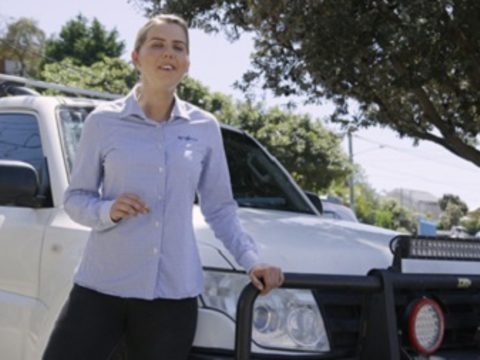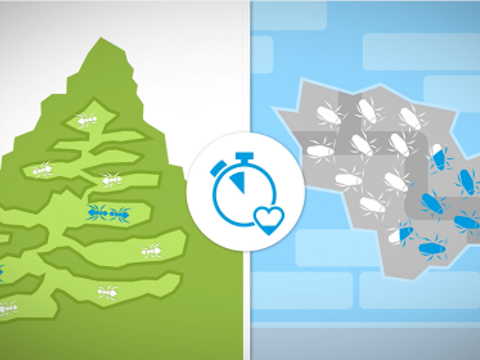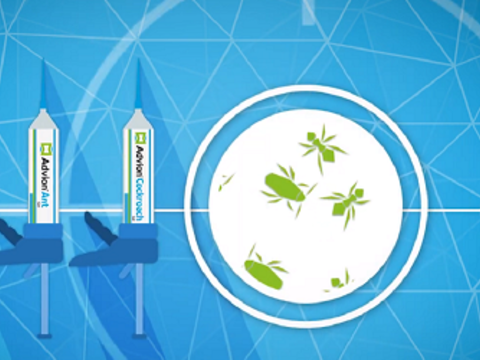Mind the heat and stop the melt

Yep, summer is well and truly upon us.
The barbeques have been dusted off, the bugs are out, and business is perking up as the days grow longer.
It’s also the time of year when gel baits and wax blocks – such as Advion Ant and Cockroach Gel, or Talon XT Pro rodenticide – are worth their weight in gold, with their powerful attractants and easy to use format. But there is one common issue that can drive professionals up the wall: when gels and blocks in perfect condition get too hot and become runny or soft.
I’ve been in pest control for over 14 years, with over half of that time spent on the R&D side. Throughout my time, I’ve addressed what feels like every question under the sun regarding product issues like melting – queries along the lines of, “It doesn’t seem to work like the original stuff” or “The last lot I got was not this runny!” or “Have you watered the product down?”
It’s right to be concerned about whether companies are sneaking chemistry changes through the back door. Rest assured, though, that under Australian Product Patent and APVMA regulations, manufacturers can’t just pull a switcheroo without informing the public (and you can bet that if we change a product’s formulation, we’ll sing about it with a new label design, brochures and the works!).
So, why is your gel or wax block melting?
In most cases, the problem comes down to two factors: temperature and mode of transportation.
Pest control vans have changed a lot over the years. In 2004, due to the very low rate of incidents, the Pest Management Act relaxed restrictions on the types of vehicles that could be used. Gone was the good old Bongo van of the 90s with plenty of flowing air space and top air spinners to ventilate the cargo area. In its place, slick new units were rolled out – tighter utes with a separate driver technician area and limited storage space.
While modern vehicles have their benefits, one downside is how exposed storage space can be to the elements, especially direct sunlight. Temperature is now a problem, as well as the impact of constant temperature changes throughout the day.
To get to the bottom of this issue, we did some experiments at Syngenta with an infrared digital thermometer in a pest control van left in typical Australian weather conditions.
Our results showed that on a day forecast at 23 degrees (such as a mild spring day) with cloud cover, the temperature inside the toolbox swings from 25-31 degrees. On that same 23-degree day, if the vehicle is parked in the direct sunlight, the temperature inside a toolbox ranges between 31-35 degrees. This constant warming up and cooling down – further exacerbated when you consider that overnight temperatures can fall to a minimum of 10 degrees – places stress on gels and blocks, especially if they aren’t properly stored.
Then we get to the searing summer months. On days when it’s hot enough to fry an egg, heat is our enemy. On a 36-degree day, the toolbox can heat up to 41-44 degrees on an overcast day, or 50-60 degrees in direct sunlight. In some cases, the weather is enough to get the temperature in a tool box to over 65 degrees. This is well past the recommended storage temperature of below 35 degrees for most gel or bait liquids on the market. It’s no surprise the result is, quite literally, a hot mess with liquefied and melted products and wasted inventory.
So how do you stop your gels and blocks from spoiling in the heat?
Common sense prevails. Taking some simple precautions will help keep your products in good nick:
- Store closed in the original container
- Keep in a cool, well-ventilated area
- Ensure products are away from direct sunlight
- Keep it well secured (a health and safety requirement)
If you add this to other best practice techniques – such as knowing the species of pest you are targeting and adjusting your gel accordingly, placing the gel close to the pheromone trail, economically spacing wax blocks at intervals – you will save both time and money at the distribution counter.
Not only that, you’ll guarantee a much better summer, both for you and your customers.
Peter Ambrose-Pearce, Territory Sales Manager, Syngenta






